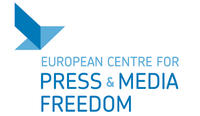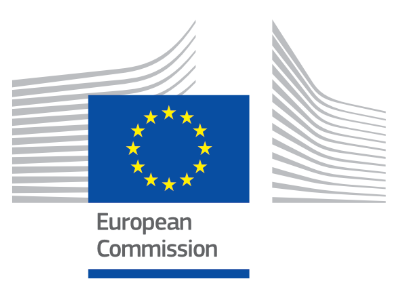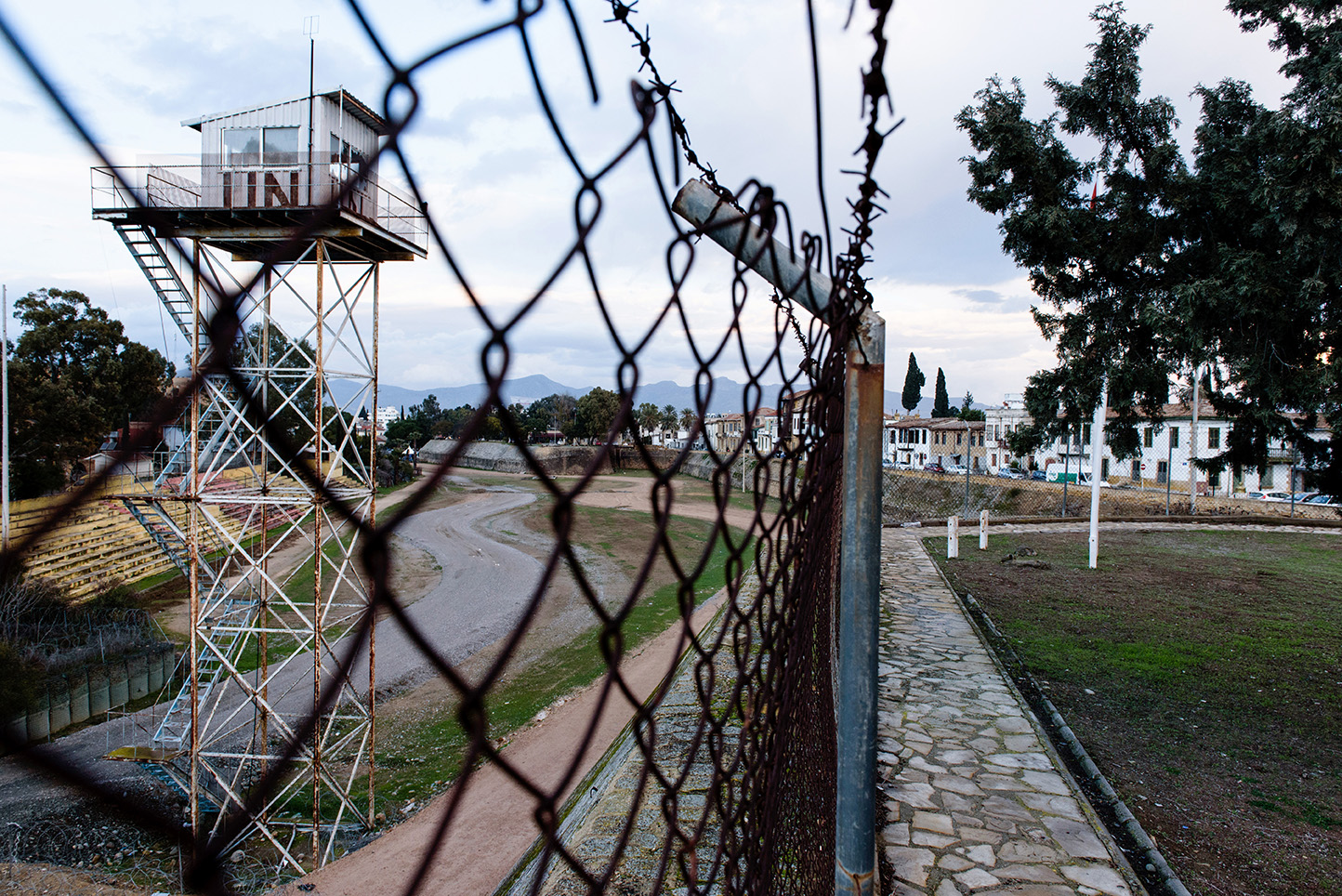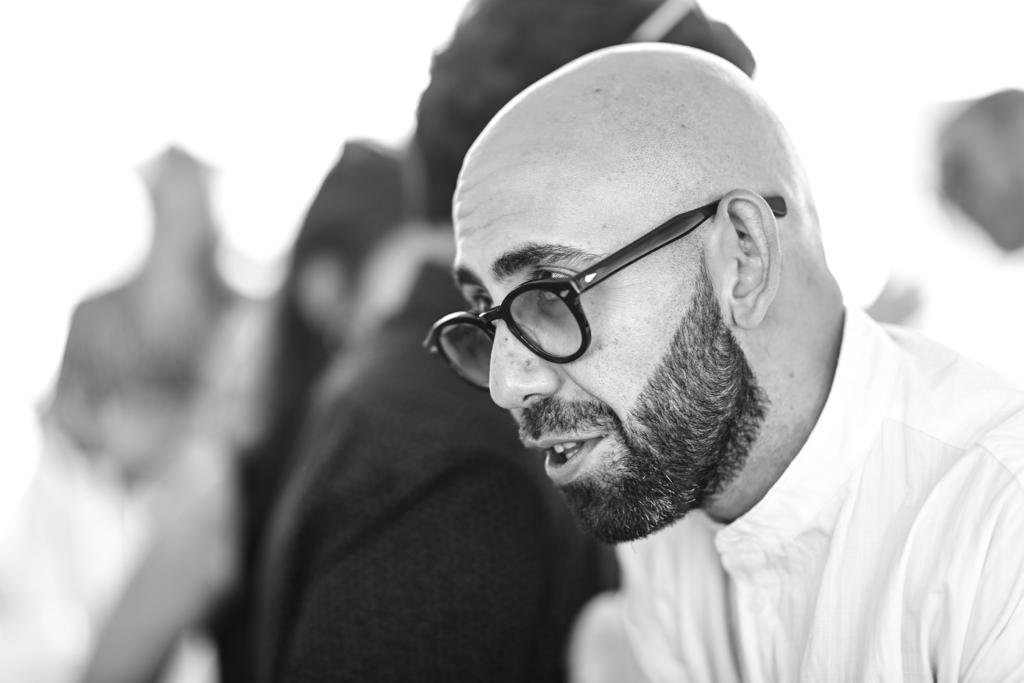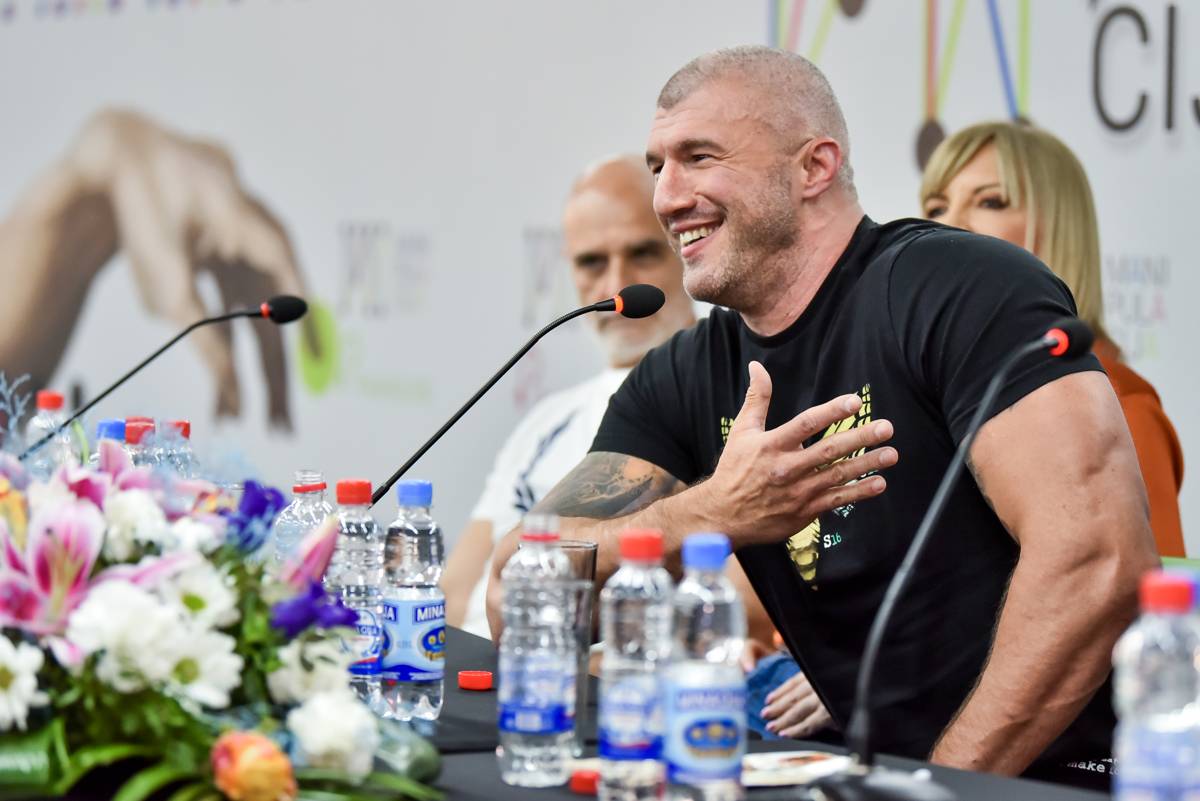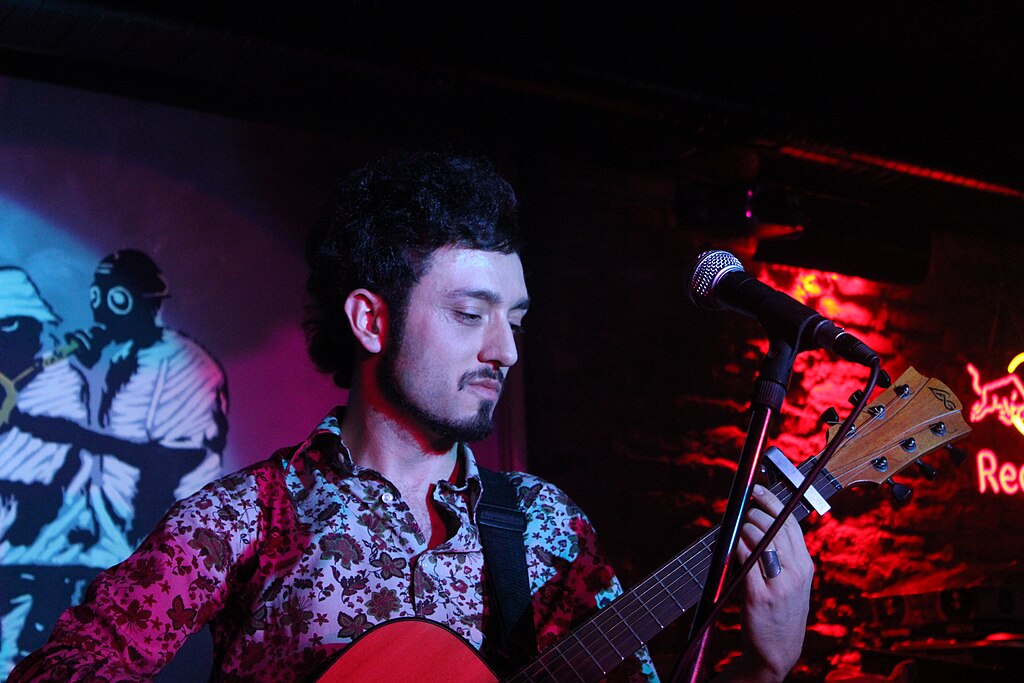(Originally published by Mediacentar Sarajevo on the 12 November 2015, written by Burak Sayin )
Instead of celebrating my friend and colleague Mohammed Ismael Rasool’s birthday, I am writing this piece about him right now. He just ‘celebrated’ his 25th birthday in a high security Turkish prison away from his loved ones. He could have been here with me in Sweden doing his master’s in Middle East Studies. But no, Turkish state has a special ability to find the best free-thinkers around and putting them into prison as a part of thought-grinding process.
What is a 25 year-old very talented journalist with a double major doing in the same prison with ISIL militants screaming ‘Allāhu Akbar’ out of their cells at nights? I suppose it is the price you pay if you are trying to do good journalism in Turkey.
I met Rasool during the siege of Kobani. We were the part of the same crew working for an international news agency. We woke up early every morning, stopped by the refugee camps as a first thing and got our dose of human suffering for the breakfast. Then, we brainstormed about the stories we can produce for our afternoon piece over the lunch which he was always quite picky about. I remember talking about the region’s problems over a kebab we are eating. While zipping my creamy ayran, his comment followed "Anything human- either life or thought- is worthless around here, because the ones in power only care about their own power, even though this costs human life".
Meanwhile, I wasn’t able to understand what a 5 language speaker (Kurdish, Turkish, Arabic, Persian and Turkish) was doing in this post-apocalyptic environment. He appeared to me as an individual who is looking for a ‘third pill’, as in Matrix, the movie. Rasool hasn’t encountered any problems although he was working in dangerous regions for journalists such as the Iraqi Kurdistan and Rojava in Northern Syria. He did that for various media outlets until his last gig. He was the part of a Vice News Crew who was covering the conflict between outlawed Kurdistan Workers Party (PKK) and Turkish security forces in Turkish Kurdistan. Hundreds of lives from all sides- civilians, soldiers and guerrillas- were lost to ongoing fighting.
The crew was detained in front of their hotel on 27th of August in Diyarbakir, a city in south-east Turkey, by the Counter Terrorism unit (TEM). Last but not least, they were ridiculously charged with working for a terrorist organization.
The police busted the crew’s hotel rooms and confiscated their laptops, hard drives etc. The crew had important footage in their hard drives, such as the footage of outlawed PKK’s youth and YDG-H patrolling streets with automatic rifles, and a 13 year-old girl who got caught into a crossfire during the fighting between YDG-H and Turkish security forces. They got arrested while they were doing their job and accused of “engaging in terrorist activities”. Apparently, Turkish authorities were determined to turn this to a Greek tragedy.
They were accused of being an ISIL agent. The ‘official’ reason for the detainment was an encryption program used by ISIL members allegedly found in Rasool’s laptop in addition to an anonymous phone call that claims spotting ‘spies’ in the neighbourhood, received by the police. At this point, the affair becomes an actual theatre play by the Turkish state. First rational question: how were they engaging in terrorist activities? Were they hanging out with rifles or setting up a bomb? The answer is a big NO. Second rational question: is an encryption software enough for declaring someone as an ISIL agent? Well, if the answer is yes, some portion of Chinese citizens along with a good sum of Americans are becoming automatically members of ISIL, which would make ISIL actually the biggest state in the world like it claims to be. Third one: what is this popular encryption software used by ISIL? I don’t know the answer. I think Turkish authorities don’t know either.
Why is the crew charged with terrorism even though a quick Google search can prove otherwise? Of course, it is a warning and an intimidation for the journalists who work for foreign media outlets. First of all, Turkey is trying to restrict the information that goes out of Turkey to the world. Second, while mainstream media becoming more and more useless in Turkey some Turkish citizens- especially young generations- are looking for alternative sources of information which aren’t ideologically polarized.
What is the source of the problem? A dysfunctional, broken and flawed machine called Turkish ‘state’. Let’s take a look at one of the cogs of the machine, Turkish media…
While members of the Vice News Crew were risking their lives in the conflict zone, Turkish mainstream media turned a blind eye to ongoing events in the region. By the way, it is not even a matter of available resources (money, staff, etc.): many news outlets have crews in the region and local journalists are doing a great job on the field. Lack of coverage in Turkish mainstream media is a ‘media elite’ problem, due to so-called journalists- mostly over 40 year old- who only gets paid to decide what is to be aired or not. Even though I understand they are a generation who went through military coups, an argument which is used as a justification for not doing journalism, it is just their lack of character and skills that prevents them from doing their job right. In addition to that, the media elite can’t comprehend the changes occurred in Turkey in last 20 years. I wouldn’t expect less from a flawed machine.
It is almost 2016 and Turkey still has only one priority: protecting a body which is defined as ‘the state’, that is far away from the majority of its citizens and that is usually reshaped by the "ruling power", in this case the Justice and Development Party. It was the military who had the ‘ruling power’ for a long time in Turkey, considering 4 coups in therecent history of the country. A government becoming the state itself is not new for Turkey. It is rather a long tradition, hindering democracy from the very beginning (1876).
At present, Turkish democracy still missesthe elements defining a democratic regime, such as check-and-balance mechanisms, transparency, political accountability, free press, and functioning civil society. Finally, during the AKP ruling period, another fundamental element of democracy started to fade. Namely, the rule of law is being undermined- an aspect which has always been problematic in Turkey, but which many citizens in this country value as the last standing pillar – although a damaged one – guaranteeing stability.
Rasool’s case is one of the many examples in Turkey demonstrating that even standard journalism practice can be twisted around and considered as a terrorist act, for the purpose of complete domination of the political sphere by using rule law as a tool. It is the end of the Turkish Republic as we know it, asUmut Ozkirimli writes in his piece for Open Democracy.
What is Rasool doing right now? I don’t know. Event his lawyers don’t know. The other two members of the Vice News crew were released and deported after spending 4 days in the high security prison where many ISIL and PKK militants were being held. It has been 75 days today since he got arrested. Prosecutors decided that the investigation should be kept "confidential", therefore the lawyers couldn’t take a look at Rasool’s case even if they are expected to prepare a defence for the next hearing that would decide if Rasool should be freed or not.
This is the picture from Turkey right now: you try to walk with your hands tied, having the chance of either getting blown up by a bomb or being jailed.
This publication has been produced within the project European Centre for Press and Media Freedom, co-funded by the European Commission. The contents of this publication are the sole responsibility of Osservatorio Balcani e Caucaso and its partners and can in no way be taken to reflect the views of the European Union. The project’s page
Tag: ECPMF
The price of being a journalist in Turkey
Arrested at the end of August and charged with “engagement in terrorist activities”, the journalist Mohammed Rasool is still detained in Turkey. A warning for journalism and foreign media outlets
(Originally published by Mediacentar Sarajevo on the 12 November 2015, written by Burak Sayin )
Instead of celebrating my friend and colleague Mohammed Ismael Rasool’s birthday, I am writing this piece about him right now. He just ‘celebrated’ his 25th birthday in a high security Turkish prison away from his loved ones. He could have been here with me in Sweden doing his master’s in Middle East Studies. But no, Turkish state has a special ability to find the best free-thinkers around and putting them into prison as a part of thought-grinding process.
What is a 25 year-old very talented journalist with a double major doing in the same prison with ISIL militants screaming ‘Allāhu Akbar’ out of their cells at nights? I suppose it is the price you pay if you are trying to do good journalism in Turkey.
I met Rasool during the siege of Kobani. We were the part of the same crew working for an international news agency. We woke up early every morning, stopped by the refugee camps as a first thing and got our dose of human suffering for the breakfast. Then, we brainstormed about the stories we can produce for our afternoon piece over the lunch which he was always quite picky about. I remember talking about the region’s problems over a kebab we are eating. While zipping my creamy ayran, his comment followed "Anything human- either life or thought- is worthless around here, because the ones in power only care about their own power, even though this costs human life".
Meanwhile, I wasn’t able to understand what a 5 language speaker (Kurdish, Turkish, Arabic, Persian and Turkish) was doing in this post-apocalyptic environment. He appeared to me as an individual who is looking for a ‘third pill’, as in Matrix, the movie. Rasool hasn’t encountered any problems although he was working in dangerous regions for journalists such as the Iraqi Kurdistan and Rojava in Northern Syria. He did that for various media outlets until his last gig. He was the part of a Vice News Crew who was covering the conflict between outlawed Kurdistan Workers Party (PKK) and Turkish security forces in Turkish Kurdistan. Hundreds of lives from all sides- civilians, soldiers and guerrillas- were lost to ongoing fighting.
The crew was detained in front of their hotel on 27th of August in Diyarbakir, a city in south-east Turkey, by the Counter Terrorism unit (TEM). Last but not least, they were ridiculously charged with working for a terrorist organization.
The police busted the crew’s hotel rooms and confiscated their laptops, hard drives etc. The crew had important footage in their hard drives, such as the footage of outlawed PKK’s youth and YDG-H patrolling streets with automatic rifles, and a 13 year-old girl who got caught into a crossfire during the fighting between YDG-H and Turkish security forces. They got arrested while they were doing their job and accused of “engaging in terrorist activities”. Apparently, Turkish authorities were determined to turn this to a Greek tragedy.
They were accused of being an ISIL agent. The ‘official’ reason for the detainment was an encryption program used by ISIL members allegedly found in Rasool’s laptop in addition to an anonymous phone call that claims spotting ‘spies’ in the neighbourhood, received by the police. At this point, the affair becomes an actual theatre play by the Turkish state. First rational question: how were they engaging in terrorist activities? Were they hanging out with rifles or setting up a bomb? The answer is a big NO. Second rational question: is an encryption software enough for declaring someone as an ISIL agent? Well, if the answer is yes, some portion of Chinese citizens along with a good sum of Americans are becoming automatically members of ISIL, which would make ISIL actually the biggest state in the world like it claims to be. Third one: what is this popular encryption software used by ISIL? I don’t know the answer. I think Turkish authorities don’t know either.
Why is the crew charged with terrorism even though a quick Google search can prove otherwise? Of course, it is a warning and an intimidation for the journalists who work for foreign media outlets. First of all, Turkey is trying to restrict the information that goes out of Turkey to the world. Second, while mainstream media becoming more and more useless in Turkey some Turkish citizens- especially young generations- are looking for alternative sources of information which aren’t ideologically polarized.
What is the source of the problem? A dysfunctional, broken and flawed machine called Turkish ‘state’. Let’s take a look at one of the cogs of the machine, Turkish media…
While members of the Vice News Crew were risking their lives in the conflict zone, Turkish mainstream media turned a blind eye to ongoing events in the region. By the way, it is not even a matter of available resources (money, staff, etc.): many news outlets have crews in the region and local journalists are doing a great job on the field. Lack of coverage in Turkish mainstream media is a ‘media elite’ problem, due to so-called journalists- mostly over 40 year old- who only gets paid to decide what is to be aired or not. Even though I understand they are a generation who went through military coups, an argument which is used as a justification for not doing journalism, it is just their lack of character and skills that prevents them from doing their job right. In addition to that, the media elite can’t comprehend the changes occurred in Turkey in last 20 years. I wouldn’t expect less from a flawed machine.
It is almost 2016 and Turkey still has only one priority: protecting a body which is defined as ‘the state’, that is far away from the majority of its citizens and that is usually reshaped by the "ruling power", in this case the Justice and Development Party. It was the military who had the ‘ruling power’ for a long time in Turkey, considering 4 coups in therecent history of the country. A government becoming the state itself is not new for Turkey. It is rather a long tradition, hindering democracy from the very beginning (1876).
At present, Turkish democracy still missesthe elements defining a democratic regime, such as check-and-balance mechanisms, transparency, political accountability, free press, and functioning civil society. Finally, during the AKP ruling period, another fundamental element of democracy started to fade. Namely, the rule of law is being undermined- an aspect which has always been problematic in Turkey, but which many citizens in this country value as the last standing pillar – although a damaged one – guaranteeing stability.
Rasool’s case is one of the many examples in Turkey demonstrating that even standard journalism practice can be twisted around and considered as a terrorist act, for the purpose of complete domination of the political sphere by using rule law as a tool. It is the end of the Turkish Republic as we know it, asUmut Ozkirimli writes in his piece for Open Democracy.
What is Rasool doing right now? I don’t know. Event his lawyers don’t know. The other two members of the Vice News crew were released and deported after spending 4 days in the high security prison where many ISIL and PKK militants were being held. It has been 75 days today since he got arrested. Prosecutors decided that the investigation should be kept "confidential", therefore the lawyers couldn’t take a look at Rasool’s case even if they are expected to prepare a defence for the next hearing that would decide if Rasool should be freed or not.
This is the picture from Turkey right now: you try to walk with your hands tied, having the chance of either getting blown up by a bomb or being jailed.
This publication has been produced within the project European Centre for Press and Media Freedom, co-funded by the European Commission. The contents of this publication are the sole responsibility of Osservatorio Balcani e Caucaso and its partners and can in no way be taken to reflect the views of the European Union. The project’s page
Tag: ECPMF

